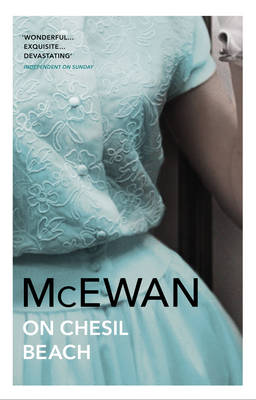Edward and Florence are about to consummate their marriage, Edward has been waiting for this moment since he first laid eyes on her, Florence has been dreading it. Few authors can slow down time to a snail’s pace and still make gripping writing quite like Ian McEwan. His several pages long description of a disastrous kiss in On Chesil Beach will have you glued. Sexual mores of the early 1960s, class, failure of communication and deep love mix in a testing cocktail in McEwan’s book. Read it now, before it comes out as a film in May.
On paper, Edward and Florence’s marriage seem like an excellent idea. They are in love, both are well educated and their different backgrounds, Florence the daughter of an Oxford don and a successful business man and Edward the son of a Headmaster struggling to make ends meet, is not an issue. But sexually Edward and Florence are trapped in the early 1960s. While Florence reads unhelpful literature aimed at young brides ‘with […] cheery tones and exclamation marks and numbered illustrations…’ which ‘almost made her gag’, the loving, attentive Edward can’t wait to become a proper adult, with all that that entails.
This was still the era – it would end later in that famous decade – when to be young was a social encumbrance, a mark of irrelevance, a faintly embarrassing condition for which marriage was the beginning of a cure.
Edward and Florence have the bad luck of being young at the wrong end of the 1960s. Much would have been different, McEwan suggest, had they been young later. Today, it’s weird for us even to contemplate a society without a worship of youth, sexual freedom and an unencumbered existence. But this is the reality of Edward and Florence. In fact, McEwan’s 1960s England feels like an entirely difference place all together with it’s diminishing colonial power, it’s bland country hotel serving ‘melon decorated by a single cherry’ and ‘long-ago roasted beef’.
There are strong hints that Florence carries a dark secret that is the root cause of her anxiety. But nothing is communicated, and everything is misinterpreted, even between two people who are deeply in love.
I was bowled over by McEwan’s seamless transition of perspective in this short novel. We wander from Florence’s mind to Edward’s and back and the enormous gap in expectations is revealed, but only to us as readers. Tragically, Edward and Florence remain in the dark, separated by a misunderstanding of epic proportions. In the end, it all comes crashing down, under the pretext of class.
On Chesil Beach is published by Vintage, 166 pages.





